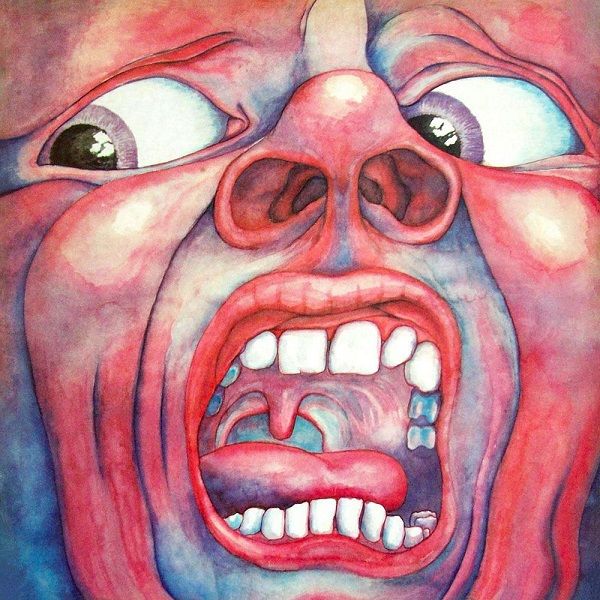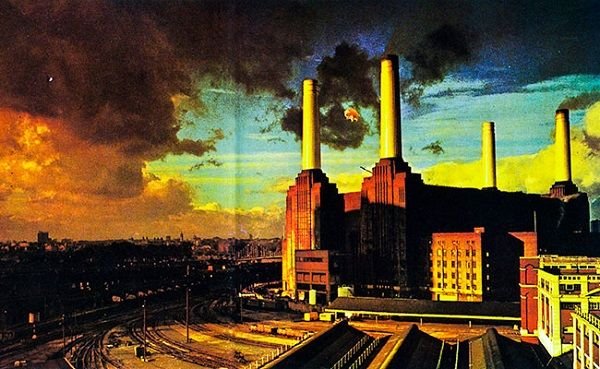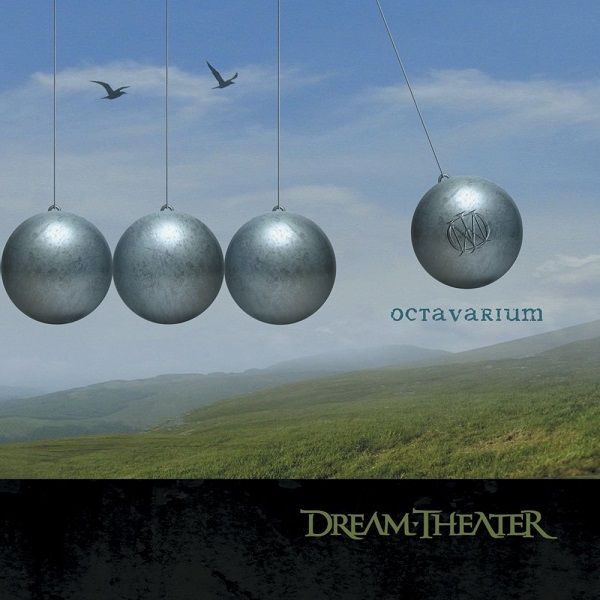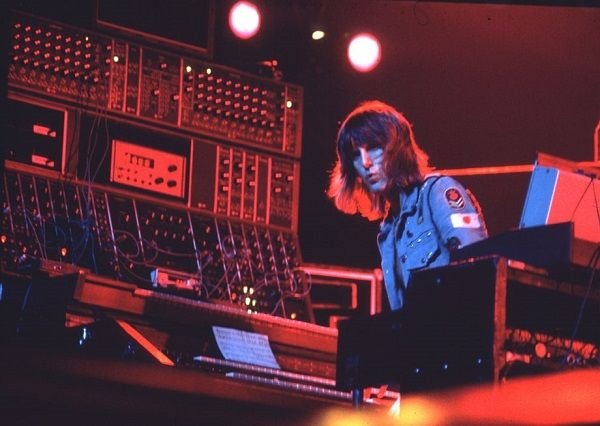
For the first time I touched the concept of progressive rock in the room of my fellow student and friend, who gave me his box and borrowed back to my home in the dark, I was struck by what I hear in the earphones (Album Images and Words and Awake by Dream Theater).
It was something quite different from everything I had heard before, and I liked it very much with the creative sound, artistry and fantasy!
Since then, I have become the most jealous fan of progressive rock, and besides Dream Theater, I've been frantically getting everything I find from groups like Yes, Rush, Magellan, Jethro Tull, Shadow Gallery, Queensrÿche and many others. I was very fortunate at the university to be friends with people who were more proficient than me in a progressive genre such as my friend, who regularly directed me to new and new bands and albums. We recorded them in boxes and we listened and discussed them over the long evenings.
That's how my adventure started in the world of progressive rock music.

What is Progressive Rock?
First, what is "progressive rock"? This is a form of rock music that has evolved since the late 1960s and early 1970s in attempts primarily on British groups to reach new levels of artistry and expression. Hence the term "art rock", which is very often used in progressive rock.
Progressive rock music goes beyond the standard technique and composition of classical popular rock. In the compositions of progressive rock groups there are many elements of classic rock, but also jazz and other styles.
Typical representatives of progressive rock music are groups such as Yes, King Crimson, Rush, Jethro Tull, Pink Floyd, Genesis and many others.
Main characteristics
The main features of progressive music are:
Form. Progressive music compositions avoid popular or common musical structures or mix them in a way that changes dynamics or increases contrast between different parts. Characteristic of the progressive rock genre are the long instrumental passages combining the traditional solo traditions with jazz improvisations. All this makes the progressive rock tracks long and it's no surprise that their duration is 15-20 minutes and even up. Some of the compositions in this genre also reach up to 40 minutes as albums.
Tools. Early progressive groups expand the palette of traditional rock instruments, including guitar, body, bass and percussion, adding instruments more typical of jazz like flute, saxophone and violin, and in the mainstream use synthesizer and electronic effects.
Rhythm. Compositions in progressive music are more frivolous and explore varied modes, not just standard 4/4. Rhythm and pace change and vary widely.
Texts. Progressive rock lyrics are very varied and, at the same time, different from standard rock or other music genres. Often references to classical literature, fantasy elements, social topics, mysticism are present in the texts. Of course, there are texts devoted to love, but not as dominant as in classic rock. Other topics in the texts are the topics of life and death, the joy and the wonder of life, etc.
Presentation. In progressive music, expressions in the form of sounds, sceneries, costumes, light effects, and album art images vary widely. Jethro Tull's vocalist often plays on the stage, dressed as a rabbit, sounds of clocks and cash registers abound in Pink Floyd's "Time" and "Money", and the progressive album artworks are beautiful, interesting and abstract, often romantic or mysterious.
Progressive groups are also characteristic of one thing - the so-called "Conceptual albums." These are bright, memorable, usually innovative albums, with which the respective groups have left a very serious trace of the genre. Conceptual albums have a specific and distinctive theme that is present in all compositions on the album. An example of a conceptual album is, for example, "Metropolis Pt. 2: Scenes from a Memory "on Dream Theater.

Development over the years and typical representatives
As I mentioned above, Progressive rock music began in the late 1960s. How has it evolved over the decades and what are some of its most current trends and representatives?
Late 60s and early 70s of XX century. Perhaps it all begins with psychedelic rock, which is characterized by esoteric texts, often talking about dreams, visions or hallucinations; long songs and long instrumental solos. Pink Floyd starts somewhere here. At that time, King Crimson, Yes, Rush, Van der Graaf Generator, Jethro Tull, Genesis, Gentle Giant, Camel are making their first steps on stage. The main engine are groups from the UK.
70s of the XX century. This is a period of affirmation of some groups, of development for others, as well as of the emergence of new names. Yes and Genesis stand out on stage, creating their first conceptual albums (which we call today classic). Pink Floyd are changing their composition and are evolving in the direction that we know today as they are. Emerson, Lake & Palmer appear. Frank Zappa is in his prime. The Swedes from Kaipa make their first steps. Also The Alan Parsons Project. Vangelis is already a name. In the States there are groups such as Toto and Chicago, which are a mix of prog rock, jazz, funk, classic rock and pop.
80s of the 20th century. In this period, progressive rock continues to develop. New names appear - Marillion, Asia, IQ, Saga, Pendragon, Queensryche, Fates Warning. The star of Kate Bush (whose work I believe is highly directed in the art-rock sphere) is rising. Known and established bands make new and different albums.
90s of the 20th century. The "Progressive Metal" genre is emerging and established, and its flags are mostly Dream Theater. Groups such as Symphnony X, Porcupine Tree, Neck Morse's Spock's Beard, Magellan, The Flower Kings, Angra also appear. The styles of the 70s and 80s are also preserved, with groups such as Yes, Pink Floyd, and Rush continuing to work actively. Sound is moderately updated. A number of experimental projects and clusters of quality musicians, such as Liquid Tension and Explorer's Club, are born.
The First Decade of the 21st Century. The great ones become even bigger and even greater. Transatlantic is formed - the super-prog rock band of the decade, maybe ... Great albums make groups such as Circus Maximus, Abydos.

Why do I listen to progressive rock?
You should already have a good idea of progressive music. I met you briefly with her story, her main representatives, a few very characteristic compositions.
Why do I pay such attention to progressive music?
Especially because music is something very important to me. I listen to music for several hours a day - during my daily walks to my workplace and back to work at home. There is some magic in music and its ability to influence my emotional state by bringing things into my life like joy, melancholy, fantasy, romance, energy, relaxation ... Over the years, I have convinced myself that the music I love most the most influential (without bothering me) is progressive rock and progressive metal.
Of course, I like many other genres, especially jazz, classical music, world and ethno music, a number of pop music performances. I am open to listening to and experimenting with a variety of other styles. But the center-point in my heart is the art-rock, the progressive.
This is probably because of the same progressive rock features mentioned above - the varied, long and more creative compositions, the technical perfection of the musicians, the special texts and messages, the enigmatic covers. Every time I listen to a progressive rock piece, I feel like I'm listening to a story or a story - something that's worth stopping and listening, thinking, feeling and even tearing.
I notice how I slowly evolve in my preferences in prog. For over 10 years, Dream Theater's sound was No. 1, but more and more I have been going back to the roots of this genre lately. I study the classical sounds and I do not stop to discover again and again how great and talented the first discoverers of this musical style that they have created decades ago, yet still sounding exciting and up to date. And the more this music matures in my mind, the better it gets.
Progressive rock music is generally not music for the body, or for the legs. You cant dance on that music . It is music for the other dimensions of man - music for his emotional side, music for his intellectual side, and heavily music for his spiritual side - for the seeker, the dreamer, the experimenting and the constantly evolving spirit.
Pink Floyd... The first time I heard it was as a 17-year-old in the 70s. Before that I had noticed its "Dark Side Of The Moon" ALWAYS at Number One. Week after week after week. But still it took me a few years before I finally listened to it (That's the result of no internet and torrent of those times).
I was blown out of my mind! Beginning with "Breathe" to that killer "Time", "Great Gig In The Sky" etc. From that moment, it was "Move over, Led Zeppelin! I'm now into Progressive Rock...and my Number One band is now Pink Floyd." That was the case until decades later...until now.
Downvoting a post can decrease pending rewards and make it less visible. Common reasons:
Submit
Nice comment! I'm a child of the 90's and fortunately, I had my childhood felt without internet.Sadly, then, music was not so often to listen but when you heard something, it left a mark in you forever. Then the value of music was valued much more, you lived for the music and you was breathe through it. Now that you have everything, you are erudite, but you feel less comfortable with easy accessibility. Now I am listening the King Crimson. Unique album!
Downvoting a post can decrease pending rewards and make it less visible. Common reasons:
Submit
King Crimson... that band was "during my time: too. But for some reason or other, I had not ever listened to any of its albums! I'll go find one.
Another band from the 70s that I like - Manfred Mann Earth Band. Especially that dreamy song of "Visionary Mountain" and several other songs from the Nightingales and Bombers album
Downvoting a post can decrease pending rewards and make it less visible. Common reasons:
Submit
Try with the first album - "In the Court of the Crimson King"
Downvoting a post can decrease pending rewards and make it less visible. Common reasons:
Submit
Yes, "In the Court of theKing Crimson" is a great introduction to the band.
For all intents and purposes, King Crimson is Robert Fripp, who recruits different musicians to create his brilliant music.
The original incarnation lasted only 5 years (1969–1974). The band reformed in 1981 and continued for 3 years, during which it released 3 albums, including the classic "Three of a Perfect Pair."
Since then, the band has gone though several incarnations. The one mainstay has been Fripp, and his brilliant compositions and his amazing guitar work. It's truly unique, and has transcended rock.
Fripp also did some great work with David Bowie, and has done several albums with Brian Eno of truly beautiful music.
Downvoting a post can decrease pending rewards and make it less visible. Common reasons:
Submit
Progressive rock is perhaps a blessing to those who feel music. The music that was made years ago by bands that I now worship, it's the language of God and food for soul.
Loved your article on it and thoroughly enjoyed reading about it. But in my opinion, I would have loved to read about the distinctive qualities of each of the bands (and others) that you mentioned. Pink Floyd, for instance, did absolutely one of a kind music that's not merely progressive rock, but also psychedelic rock and alternative rock. Would love to hear your views on the classics - Guns n Roses, Led Zeppelin, Pink Floyd, etc. X
Downvoting a post can decrease pending rewards and make it less visible. Common reasons:
Submit
I accept your remark. I will soon write an article about the groups you mention, mostly Pink FLoyd, because they are my favorite band. Cheers!
Downvoting a post can decrease pending rewards and make it less visible. Common reasons:
Submit
They're my absolute favorite also.
I'll definitely be waiting for that one. X
Downvoting a post can decrease pending rewards and make it less visible. Common reasons:
Submit
good job
Downvoting a post can decrease pending rewards and make it less visible. Common reasons:
Submit
Thanks!
Downvoting a post can decrease pending rewards and make it less visible. Common reasons:
Submit
I've been a musician all my life and while I love complex Jazz and Classical music, I've never really gotten into prog. Something about it always seemed to antithetical to the accessibility of rock/rock & roll. Your thoughtful explanation of the genre has made me think I might start listening to some more of it, though. Would you say Dream Theater is a good band to start with?
Downvoting a post can decrease pending rewards and make it less visible. Common reasons:
Submit
Downvoting a post can decrease pending rewards and make it less visible. Common reasons:
Submit
My personal observations is that many people who listen a lot of good music (clasical, jazz) listen Dream Theater. For me they are too virtuoso and I don't like that. You can try this group, you may like it, Van Der Graaf Generator :
Downvoting a post can decrease pending rewards and make it less visible. Common reasons:
Submit
you should check this out. This is my favourite 70s band
Downvoting a post can decrease pending rewards and make it less visible. Common reasons:
Submit
Yes. Cockney Rebel are nice example too!
Downvoting a post can decrease pending rewards and make it less visible. Common reasons:
Submit
Sir - it's "Steve Harley & Cockney Rebel"
Downvoting a post can decrease pending rewards and make it less visible. Common reasons:
Submit
Please take a listen to the whole track. It's not a №1 hit like Sebastian or Make me Smile so you may not know it :D :D
Downvoting a post can decrease pending rewards and make it less visible. Common reasons:
Submit
Great post, i like prog rock , nice Dream Theater , Pink, and many bands, italian bands and nit italians bands
Downvoting a post can decrease pending rewards and make it less visible. Common reasons:
Submit